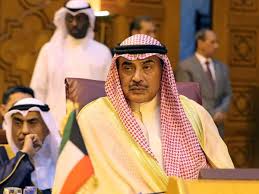
Kuwait’s political landscape saw a significant shift as the country’s emir appointed Sheikh Sabah Khaled al-Hamad al-Sabah as the new crown prince, according to state media reports. This decision comes just six months after the emir assumed the throne and follows the recent suspension of parliament.
Sheikh Sabah Khaled, aged 71, brings extensive experience to his new role, having served as Kuwait’s foreign minister from 2011 to 2019 and then as prime minister until 2022. His appointment comes at a crucial time for Kuwait, which has been navigating political challenges, including the dissolution of parliament by the 83-year-old emir, Sheikh Meshal al-Ahmad al-Sabah, shortly after elections in May.
The emir’s decision to suspend certain constitutional provisions and dissolve parliament has raised concerns about Kuwait’s political stability. Unlike some other Gulf states, Kuwait has a parliament with significant influence, although ultimate authority remains with the royal family. This dynamic often leads to tensions and periodic crises between lawmakers and the government.
Kuwait’s economy, heavily reliant on oil revenues, has faced ongoing struggles in diversifying away from this dependency. With approximately seven percent of global oil reserves and substantial sovereign wealth, Kuwait possesses significant economic resources. However, the country’s long-term economic sustainability hinges on successful diversification efforts to reduce its reliance on oil income.
As Sheikh Sabah Khaled assumes his new role as crown prince, Kuwaitis and observers alike will be closely watching developments in the country’s political and economic spheres, looking for signs of stability and progress in addressing key challenges.
Sources By Agencies


